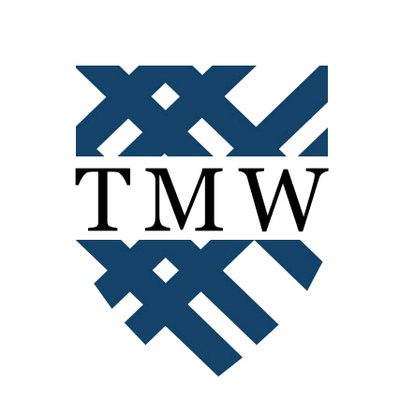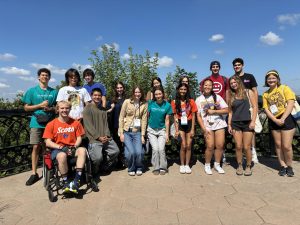Addressing the absence of refugee students @ Mac

November 21, 2019
Education is a human right. The Syrian Civil War has put this human right in danger for three million Syrian children and youth. As of 2018, more than 7,400 schools have been destroyed or put out of service, and the reality of internal displacement and the presence of refugees in neighboring countries further exacerbates the education crisis for Syrians.
According to the United Nations High Commissioner for Refugees, less than one percent of university-aged refugees were currently enrolled in an institution of higher education in 2017. As the Committee for Refugee Student Access (CRSA), we are determined to use the power of our student voices to enact change at Macalester that will address this crisis.
In 2016, Macalester students Farah AlHaddad, Nicholas Bascunan-Wiley, Muath Ibaid, Bo-Sung J. Kim, Abigail Massell, Rebecca Mendelsohn, Jacquelyn Sieck, Isamu Bix and Ari Jahiel formed CRSA. CRSA advocates for the recruitment and admission of refugee and displaced students to Macalester College, and coordinates systems of support for students’ financial, academic, mental and physical well-being during their time at Macalester.
The committee was initially formed to advocate for the recruitment of Syrian refugee students currently in Syria, but the travel ban has complicated our recruitment strategy. Consequently, our scholarship’s target population has been expanded to Syrians currently in the United States and international students from the Middle East region with refugee status who demonstrate full financial need. Our goal is to create a scholarship intended for this population and increase recruitment for students who fit this criteria.
What our committee is advocating for is possible. Two prominent institutions of higher education — Bard College and Monmouth College — have already established full scholarships for Syrian students. Bard and Monmouth College have both joined the Institute of International Education Syria Consortium, a group of colleges that are specifically committed to providing scholarships to Syrian refugee and displaced students.
Bard and Monmouth worked with students to overcome challenges such as procuring educational records, and both worked with donors who are committed to supporting students at financial risk. The precedent that these two colleges set provide a significant incentive for Macalester College to address the educational crisis born out of the Syrian civil war and take action at the institutional level.
Accepting and funding refugee students would demonstrate a commitment to Macalester’s stated values. According to Macalester’s mission statement, the college “is committed to being a preeminent liberal arts college with an educational program known for its high standards for scholarship and its special emphasis on internationalism, multiculturalism, and service to society.” Macalester prides itself on the diversity of its student body; it publishes statistics each year stating the countries from which new students originate.
Recruiting refugees and displaced students will add to the diversity of experience and socioeconomic statuses present at Macalester. Furthermore, Macalester’s emphasis on service to society means it actively promotes engagement opportunities with the refugee and immigrant populations in the Twin Cities, including positions tutoring refugee children. Shouldn’t we, as a school, help promote higher education opportunities for these same children when they are ready to attend college?
Support from the Macalester student body is crucial to the success of the recruitment, admission and scholarship for refugee and displaced students. Macalester celebrates multiculturalism and internationalism, but where are the individuals whose history and lived experience as refugees are rooted in these concepts?
When we speak of the refugee crisis on this campus, representation nearly always comes from an outsider. When we discuss racism and xenophobia, we hear almost exclusively from white pedagogues. Macalester consistently claims to be an institution committed to upholding human rights and social equity. It is difficult to understand why Macalester would not embrace this opportunity to enact these visions that would result in a transformative experience for the selected students and the student body as a whole.
In regard to student engagement, we encourage students to participate in the push for the recruitment of refugee and displaced students by raising awareness regarding representation, and the lack thereof, of refugee-identifying individuals in our student body. We also encourage students to keep an eye out for speaker events sponsored by CRSA in the upcoming semester.
The student body is capable of creating transformative change on this campus. Macalester’s recruitment policies and tactics will not change unless pressured by its students. If you would like to show your support towards our mission and learn more about CRSA, please reach out via [email protected] or visit Macalester’s “Refugee, Displaced Person, Asylum Seeker and Stateless Person Applicants” webpage.












